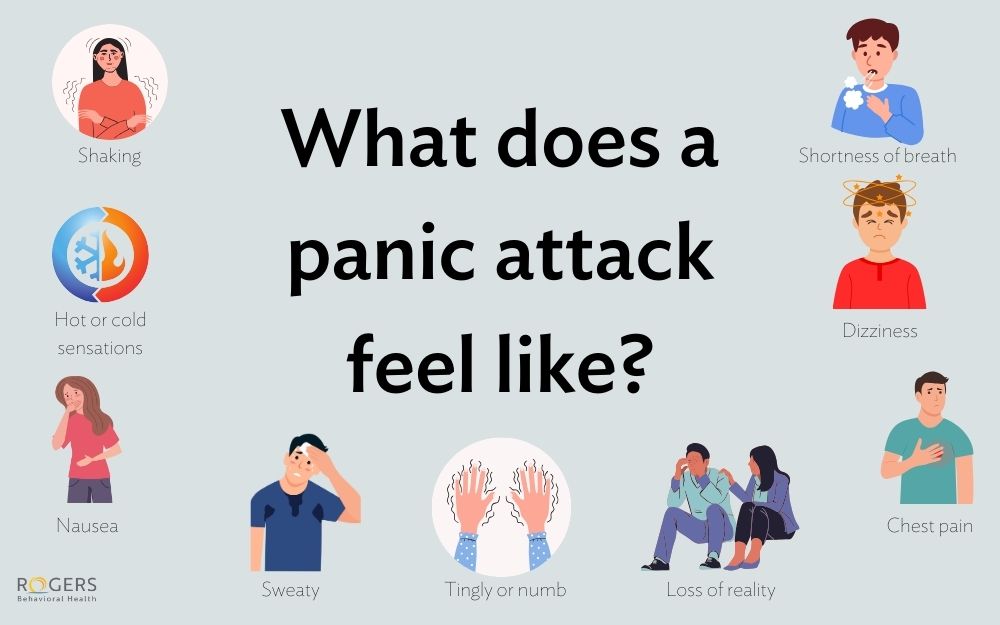3 tips for talking about body image in summertime when concerns often peak
Posted on 06/20/18 01:05:pm
Share this article:
Going to the beach. Splashing around the pool. Attending barbecues. S’mores and bonfires. Summertime is all about fun times with friends and family. For many, these activities are happily anticipated—but for those struggling with body image concerns, these occasions are often filled with dread.
Body image encompasses not only an individual’s perception of his or her body, but feelings and emotions attached to that perception as well.
“Summertime can amplify destructive body image issues or foster unhealthy behaviors tied to the early stages of an eating disorder,” says Dr. Jody Langford, medical director of the child and adolescent eating disorder inpatient program at Rogers. “The season can also uncover a loved one’s eating disorder. For example, a person battling anorexia nervosa may have been hiding under bulky clothes throughout the winter, but now that it’s swimsuit season, extreme weight loss is more apparent.”
What influences body image?
Before working on improving body image, it’s important to first understand the influencers behind it. While there is no single cause of eating disorders, research indicates that body dissatisfaction is the best-known contributor to the development of anorexia nervosa and bulimia nervosa1. And only about a quarter of both men and women say they’re “extremely satisfied” with their appearance and weight2.
“Body image is influenced by a variety of factors,” says Amberly Mixon, therapist at Rogers’ residential Eating Disorder Center. “Magazines, social media, parents, siblings, sports, peer groups, and a person’s history all have an impact on how we feel about our bodies.”
Add summertime into the mix with the increased conversations around swimsuits and diets, and these factors are intensified.
Amberly sees both males and females striving for either the very thin look or an extremely muscular toned physique, but there are many scenarios that can trigger a disorder. She explains a few scenarios. “An example of a person’s history impacting the onset of an eating disorder could be a trauma survivor whose goal is to not have curves of any sort. A person influenced by peer groups could be someone whose peers compliment them on having a curvy body.”
Even a parent’s or sibling’s habits can have an impact on how someone thinks of their body. In fact, 5- to 8-year-olds who think their moms are unhappy with their bodies are more likely to feel dissatisfied with their own.3
“Children are listening and observing 24/7,” says Amberly. “They see the pantry stocked with diet foods, hear how family members speak about their own bodies, and notice mom may only wear a one-piece swimsuit. Observing these types of behaviors can unintentionally prompt the beginning of a negative body image.”
To help kids feel good about their bodies, it’s best for parents to not make comments about anyone’s appearance. This lets the child know that what people look like doesn’t matter.
Preventing negative body image
“If a person has an unhealthy obsession with their body, this can lead to engaging in dangerous behaviors, such as exercising compulsively, restricting, or purging,” says Amberly.
Her advice is to focus on engaging in summertime activities, such as going to the beach or family gatherings, even if a poor body image makes that difficult.
“When a person avoids events due to body dissatisfaction, it leads to an increase in anxiety, and the anxiety perpetuates this cycle of avoidance and becoming more anxious about the person’s body image,” she adds.
Mindfulness is a technique that helps decrease cycling negative thoughts and move your attention back to the present moment. The practice helps tune out the influencers of body image, by being mindful of the event instead of focusing on how you look. If mindfulness exercises are a struggle, Amberly encourages people to start focusing on the purpose of their body parts instead of judging those parts. “An example of this is ‘I need my arms to lift items and give my family hugs,’ instead of ‘My arms are huge!’”
Dr. Langford adds, “It’s important to focus on the positive social and enjoyable aspects of summer activities, such as connecting with nature while kayaking or laughing with your child going down a waterslide. I encourage patients to think of these positives before, during, and after the events. It’s also imperative to surround yourself with encouraging people who want to support you in developing body positivity.”
3 tips for supporting someone who has a negative body image
According to Dr. Langford and Amberly, following these three tips can help guide you in your response to someone who you think may have conflicting feelings about their body.
- Ask if they’re struggling with how they feel about their body. If they are, ask how you can support them through that situation. By asking them, they’ll know someone cares.
- Validate their feelings. Use encouraging phrases such as, “I hear you,” “You’re not alone,” and “Others struggle with these feelings, too.”
- Include them. Keep inviting them to the fun get-togethers of summer, even if it’s something you know they may want to avoid, such as going to the beach. Not inviting them could make them feel alone and even worse about their body because they will feel excluded.
If you suspect you or a loved one may have an eating disorder, take our short quiz, call 800-767-4411, or request a free, confidential screening.
Eating disorder treatment is offered for ages 8 and up at our Oconomowoc, Appleton, Madison, Chicago, Minneapolis, Nashville, and Tampa locations. Ages treated and programs vary by location.



